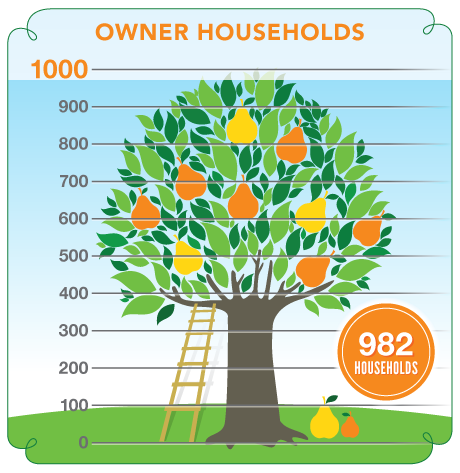Shared Harvest Co-op Seeking Downtown Elgin Spot


For organizers of an Elgin food co-op, it turns out that Ace isn't the place.
Those hoping to open the Shared Harvest food co-op in downtown Elgin are looking for a new home for their project - and still plan to ask the city for financial support.
Organizers intended to open the store at 215 S. Spring St., filling an empty 4,250-square-foot former Ace Hardware adjacent to the current Ziegler's Ace. Ace owner David Ziegler was willing to allow Shared Harvest to use the space rent-free, provided members fixed up the building.
But co-op backers recently learned it would be too costly to shore up the building, Shared Harvest President Pam Echevarria said.
According to Echevarria, Ziegler told the group about a crack in a building wall. In early October and before an annual shareholder meeting, the Shared Harvest board commissioned a structural engineer to inspect the building. The engineer said the building would probably need continuous repair, Echevarria said.
"The building was built in 1958, and over the years the floor had sunk," Ziegler said. "It was still in good shape. The Shared Harvest people knew this, but now that they are further along in getting members, they had the engineer do the inspection. He found that the building had shifted a little. It would be cost-prohibitive to operate as a retail store."
Ziegler said the downtown Ace will continue to use the structure for storage and staff training space. The business didn't want to put money into renovating the space over the years, he said, and the thought was Shared Harvest might be able to use it. But the work needed would cost too much for the group, ZIegler said.
Neither Ziegler now Echevarria offered an estimate of what repairs would cost.
"This is a very wise decision the board made for shareholders. The building isn't on a solid foundation. It's sad, but wise," Ziegler said.
Ziegler said he has not become a Shared Harvest shareholder to avoid a conflict of interest. Now that the Ace building is out of the picture, Ziegler said he intends to invest in the co-op project.
Despite having to look for a new building, Echevarria said the effort to open was not back to square one.
"Everything happens for a reason, and we probably will be better off in the long run," Echevarria said.
The group will be looking at other downtown properties that might be available, Echevarria said.
"We'll be looking at all options. We need to ask our shareholders," Echevarria said.
That is scheduled to happen Monday during a meeting scheduled to start at 6:30 p.m. in Old Main on the campus of Elgin Academy, Echevarria said.
According to Echevarria, the group has sold 1,400 shares and is 19 shareholders away from 1,000 households. While backers have been seeking community support for more than five years, Echevarria said few people have asked for their money back.
"If they have, it's been because they are moving out of the area, or maybe are getting divorced. Our shareholders understand that this is a process," Echevarria said.
In a food co-op, the operation is owned by people who invest their own money in the operation. Some co-ops have members also involved in working various aspects of the business. Items sold typically are grown by local farmers or made by local vendors.
In October 2016, Echevarria told The Courier-News that $330,000 has been promised in loans from backers, and Shared Harvest had secured $20,000 in grants for the project.
At that time, Mayor Dave Kaptain said he had told Shared Harvest backers he met with that might be willing to ask the Council to grant the effort $250,000 if Shared Harvest could reach at least 1,000 members - a bare minimum number the city felt would be needed to make the for-profit endeavor run out of the red.
The form of granting money could have been similar to when the city has offered sales tax rebates. That was used for Butera to open in what was a long-vacant Eagle grocery story on the city's northwest side, Kaptain had said.
Wednesday, Kaptain said the $250,000 amount was based on how much it might have cost to open and operate in the Ace space.
"They can ask for money, but the whole dynamic has changed," Kaptain said. "They'll have to revisit the whole thing."
Echevarria said Shared Harvest backers most likely would be asking Elgin for some sort of financial support in 2018.
"We will have to tweak our plans. We won't know our needs until we have real estate selected, and will have to update our financial plan. So, what what kind of support we'll ask for remains to be seen," Echevarria said.
In 2017, Elgin commissioned an economic and fiscal impact report from the Incentis Group. The document estimated that, through taxes and indirectly, the city might see anywhere between $10,000 and $64,000 per year over 10 years, if Elgin provided $250,000 to the effort.







